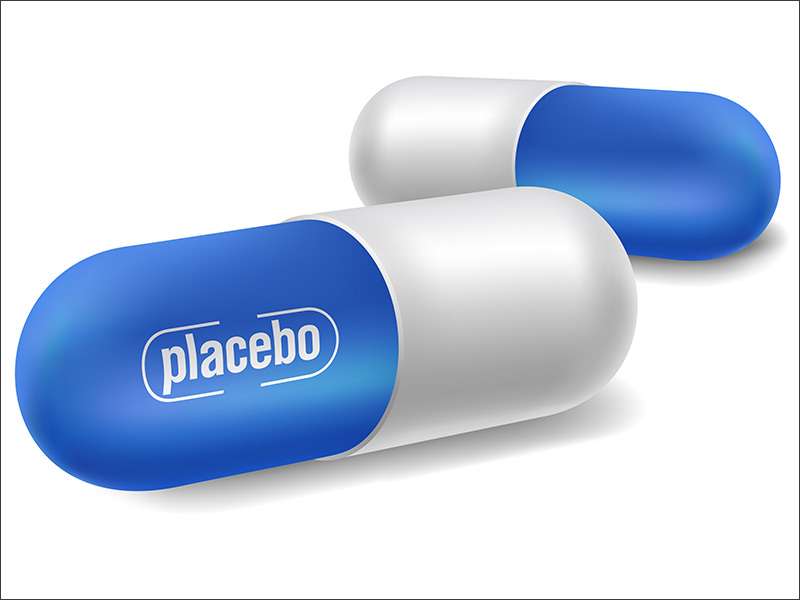I’m sure if you are reading this you probably already know what the placebo effect is, and you’ve probably actually experienced it at some point in your life even if you just didn’t realize it at the time.
But for those who don’t, a placebo is basically something that is given as a medical treatment, despite not actually having any therapeutic value. Basically it’s not a treatment but it’s offered to patients as if it is.
It’s been used for many, many years in clinical trials as well as to satisfy hypochondriac patients that there wasn’t actually anything wrong with. It might sound like a sham, and no doubt it’s been used as such, but the shocking thing is that it usually works.
A placebo can do the job of ‘curing’ what someone thinks is wrong with them and what’s even crazier is that it works even if the patient knows that it’s a placebo. The human brain is a fascinating thing right?
Here are three examples of this bizarre phenomenon in action:
The Red Pill
These days when you hear the term ‘red pill’, it’s usually got to do with the idea that there’s unpleasant truths that we’re ignoring until taking the proverbial pill which will open our eyes to what’s actually going on in the world.
A clever reference to a scene from The Matrix, but not the kind of red pill that I’m referring to right now. If a patient is given a placebo drug and it comes in the form of a large red pill, it’s much more likely to have the desired effect than a small white pill.
Even if they are filled with the same ingredients, your body will react to the big red pill more so than any other size and color. Somewhere deep in our subconscious mind, we assume that the big red pill will be more effective.
And then because our subconscious feelings overriding our paranoia and anxiety is basically what the placebo effect is, the red pill will, in fact, be more effective. And it will probably just be filled with sugar or salt.
Salt does have its benefits for our health but these are just substances used to make the ‘medicine’ appear legitimate. Make sense? Of course, it doesn’t, but neither does your brain!
Poison Ivy
In 1962, a study was conducted using some poison ivy, some random innocuous leaves and the bare arms of thirteen unfortunate, and hopefully well-paid, college students. The findings of this experiment were fascinating.
What happened was that each student was touched on one arm with the leaves of the poison ivy plant and then on the other with the leaves of the harmless plant, but they were told that harmless leaves were poison and the poison ones were harmless.
And then, shockingly, every single one of the boys began to experience not only pain but also visible rashes and other skin damage on the arms that were just touched with the harmless leaves.
What’s even more surprising is that only two of the students were afflicted similar issues on the arm that was genuinely exposed to poison ivy. So both your brain and your body can react in dramatic fashion to a placebo.
Fake Sleep
Now I know we all like to sleep but the fact of the matter is that it takes up a lot of time. Seriously, 8 or 9 hours out of the 24 that we get in a day? We could get so much done in that time!
Unfortunately, it’s necessary for us to sleep. However, if you have a particular obligation that requires you to be up for longer than your body is used to, and you’re worried about your mental performance, there is such a thing as placebo sleep.
Okay look, this probably isn’t something that you can actually use in your life, but a study conducted on this very idea has yielded some interesting results which are further evidence of the power that placebo holds over us.
A group of students was subjected to tests and they were told that their brain waves were being measured to determine how well they had slept the night before. Regardless of the results, some were told they slept well and others were told they didn’t.
After this, they all took an aptitude test and the ones who were told that they had sufficient sleep performed significantly better than those who were told otherwise. How well they actually slept, which was something they personally reported before the tests, ended up being irrelevant.
It’s pretty incredible to think about, but these are just a few examples of how you can trick your brain, and how you can help yourself overcome obstacles that you believe are standing in your way.
So maybe we shouldn’t be so skeptical when we hear the word placebo, because there appear to be many instances where it can be used for good.
*****
From time to time, GraniteGrok accepts content from third parties (posts, or additional links after initial publication) from which we may or may not receive compensation.
